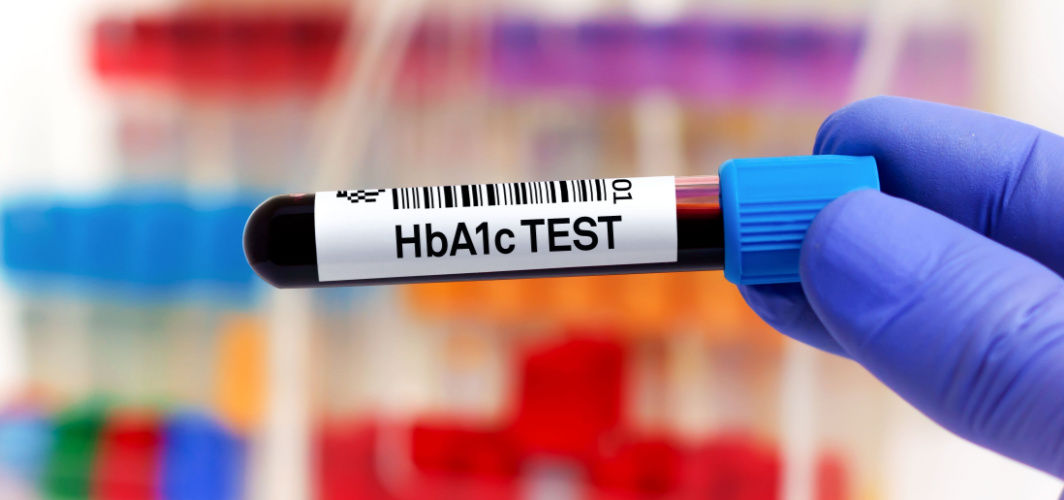Diabetes Management
Understanding Gestational Diabetes: Indications and the Importance of Screening
1 min read
By Apollo 24|7, Published on - 24 May 2024
Share this article
0
0 like
.jpg?tr=q-80)
Gestational diabetes, a form of glucose intolerance that develops during pregnancy, is a rising health concern in India. The surge in prevalence, particularly among urban dwellers, demands increased awareness and timely intervention to safeguard the well-being of both mother and baby.
Recognizing the Indications
Most women with gestational diabetes do not exhibit noticeable symptoms, making regular screening crucial. However, some may experience excessive thirst, frequent urination, fatigue, or blurred vision. If you notice any of these signs, consult your doctor immediately.
Screening: Key to Early Detection
Screening for gestational diabetes typically takes place between the 24th and 28th weeks of pregnancy. The universal screening process recommended for gestational diabetes involves a simple, non-fasting Oral Glucose Tolerance Test (OGTT). Timely screening allows for early detection and management, reducing potential complications for both mother and baby.
Risk Factors
Risk factors commonly associated with gestational diabetes include being pre-diabetic, having a family history of diabetes, living a sedentary lifestyle, and conditions like polycystic ovary syndrome and nutritional deficiencies. It is important to inform your doctor about any known risk factors to avoid complications during pregnancy.
Impact and Management of Gestational Diabetes
Gestational diabetes poses adverse outcomes for both the mother and baby. These can include pre-eclampsia, increased risk of type 2 diabetes later in life, excessive birth weight, early labour, and potential long-term health issues for the baby such as obesity and type 2 diabetes.
Effective management of gestational diabetes often involves lifestyle modifications such as dietary changes and physical activity. In fact, up to 85% of women can control their blood sugar levels with these modifications alone. For others, medication may be necessary. By focusing on evidence-based lifestyle changes, regular doctor consultations, and leveraging health-tech solutions, the impact of gestational diabetes can be minimized for healthier pregnancies and outcomes.
Diabetes Management
Consult Top Diabetologists
View AllLeave Comment
Recommended for you

Diabetes Management
Can One Develop Diabetes at a Young Age?
Diabetes can develop at a young age, not just in older adults. Type 1 diabetes, autoimmune and diagnosed in childhood or adolescence, contrasts with Type 2, more common in young people, linked to obesity and lifestyle. Risk factors: family history, obesity, sedentary behavior, poor diet, puberty hormones. Prevention involves lifestyle, check-ups, family support, and education. Diabetes affects all ages, including teenagers and children.

Diabetes Management
Understanding Diabetes-Related Eye Diseases
Diabetes impacts your eyesight. Recognizing symptoms and addressing risk factors like blood sugar levels are crucial. Prevention involves regular eye check-ups, effective diabetes management, and a healthy lifestyle. Staying informed and seeking timely care can help reduce the impact of these eye diseases, preserving the gift of sight.

Diabetes Management
How To Bring Down The HbA1c Level?
To lower the HbA1c levels, diabetics should dollow a diet with low glycemic index foods and manage portion sizes. They should engage in regular exercise to manage weight and improve insulin sensitivity. Diabetics should also consume a fiber-rich diet to regulate blood sugar levels. Besides, taking prescribed oral hypoglycemic medications and monitoring blood glucose levels at home can bring down HbA1c levels.
Subscribe
Sign up for our free Health Library Daily Newsletter
Get doctor-approved health tips, news, and more.
Visual Stories

8 Fruits That are Incredibly Healthy for Diabetes
Tap to continue exploring
Recommended for you

Diabetes Management
Can One Develop Diabetes at a Young Age?
Diabetes can develop at a young age, not just in older adults. Type 1 diabetes, autoimmune and diagnosed in childhood or adolescence, contrasts with Type 2, more common in young people, linked to obesity and lifestyle. Risk factors: family history, obesity, sedentary behavior, poor diet, puberty hormones. Prevention involves lifestyle, check-ups, family support, and education. Diabetes affects all ages, including teenagers and children.

Diabetes Management
Understanding Diabetes-Related Eye Diseases
Diabetes impacts your eyesight. Recognizing symptoms and addressing risk factors like blood sugar levels are crucial. Prevention involves regular eye check-ups, effective diabetes management, and a healthy lifestyle. Staying informed and seeking timely care can help reduce the impact of these eye diseases, preserving the gift of sight.

Diabetes Management
How To Bring Down The HbA1c Level?
To lower the HbA1c levels, diabetics should dollow a diet with low glycemic index foods and manage portion sizes. They should engage in regular exercise to manage weight and improve insulin sensitivity. Diabetics should also consume a fiber-rich diet to regulate blood sugar levels. Besides, taking prescribed oral hypoglycemic medications and monitoring blood glucose levels at home can bring down HbA1c levels.
